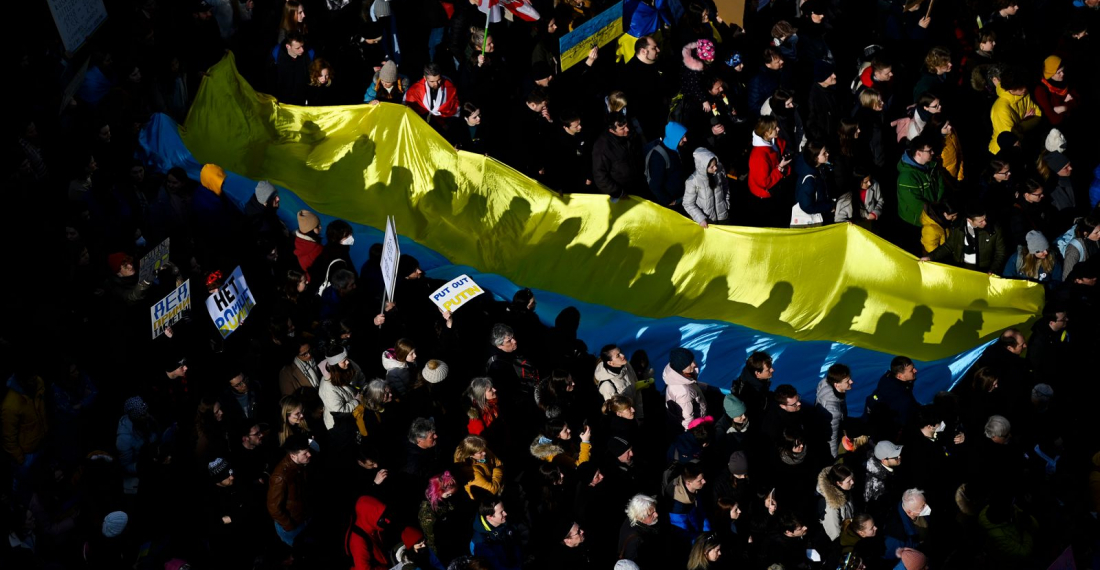The European Commission has allocated 450 million euros to finance arms and ammunition for Ukraine. An additional 50 million euros will be spent on non-lethal equipment, such as helmets and first aid kits. President of the European Commission, Ursula von der Leyen, and High Representative of the European Union for Foreign Affairs and Security Policy, Josep Borrell, announced this on Sunday evening (27 February) after a virtual meeting with all EU Ministers of Foreign Affairs.
"For the first time ever, the European Union will finance the purchase and delivery of weapons and other equipment to a country that is under attack, Von der Leyen said.
Von der Leyen also announced that all assets of the Russian Central Bank in the European Union will be frozen, that oligarchs will also be targeted and that the entire EU airspace will be closed to all Russian aircraft.
Furthermore, the Commission will also close access in the EU to Russian state media such as RT and Sputnik. They "will no longer be able to spread their lies to justify Putin's war and sow discord in our union", Von der Leyen said.
In what Josep Borrell described as “a defining moment for European history”, he said that the bloc’s 27 foreign ministers had greenlighted the unprecedented support for Ukraine.
During the speech, Borrell said that "the EU is worried about what might happen in the whole region. Russia is not going to stop in Ukraine. And Russian influence can start working in the neighbor countries, Moldova and Georgia, and also will have an impact on the Western Balkans. So we have to pay a lot of attention to what is happening there."
EU countries are also investigating whether to send "fighter jets" to the country at Ukraine's request to help it repel Russian air and land attacks, Borrell said Sunday.
He said Ukrainian Minister of Foreign Affairs, Dmytro Kuleba, has asked for fighter jets that his country’s air force can operate. Those planes would be Soviet-built models, mainly MiG and Sukhoi jets. A number of Eastern European EU member states have these planes in their arsenals.
In the meantime, European Commission President Ursula von der Leyen told Euronews on Sunday that Ukraine belongs in the European Union and the bloc would like to see the country join it in time
"Indeed over time, they belong to us. They are one of us and we want them in," she said.
Across the EU there has been a massive expression of support for Ukraine, emboldening leaders to take tough decisions that only a few days ago seemed all but impossible.






